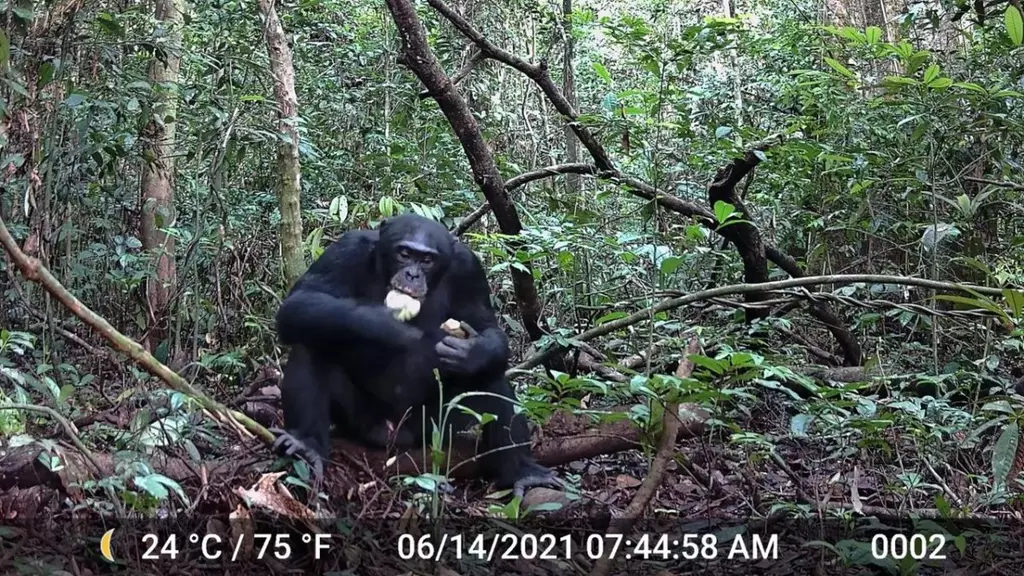

Study: Chimps consume the equivalent of two alcoholic drinks per day
A California research team found chimpanzees eating fermented fruit in their native habitats consume the equivalent of nearly two alcoholic drinks per day.

Sept. 18 (UPI) -- Researchers at the University of California, Berkeley, found chimpanzees eating fermented fruit in their native habitats consume the equivalent of nearly two alcoholic drinks per day.
The research team, who published their findings Wednesday in the journal Science Advances, analyzed 21 species of fruit regularly eaten by chimps in Uganda and the Ivory Coast to measure the alcohol content.
"Across all sites, male and female chimpanzees are consuming about 14 grams [about half an ounce] of pure ethanol per day in their diet, which is the equivalent to one standard American drink," Aleksey Maro, a graduate student at the university's Department of Integrative Biology, said in a news release. "When you adjust for body mass, because chimps weigh about 40 kilos [88 pounds] versus a typical human at 70 kilos [154 pounds], it goes up to nearly two drinks."
The team drew on research by primatologists who found chimps each each about 10 pounds of fruit every day, making up about 75% of their diet. The Berkely researchers approximated the proportions of each fruit in an average chimp's diet to reach their conclusions.
"The chimps are eating 5 to 10% of their body weight a day in ripe fruit, so even low concentrations yield a high daily total -- a substantial dosage of alcohol," Robert Dudley, UC Berkeley professor of integrative biology, said in the release.
Researchers said it is not yet clear whether chimpanzees are actively seeking out fruit with higher ethanol levels, but if that is the case, it is likely their alcohol consumption is even higher than expected.
Dudley authored a book called The Drunken Monkey: Why We Drink and Abuse Alcohol in 2014. His so-called "drunken monkey hypothesis" posits that common ancestors to humans and apes likely ate similar, alcohol-rich diets.
"Chimpanzees consume a similar amount of alcohol to what we might if we ate fermented food daily," Maro said. "Human attraction to alcohol probably arose from this dietary heritage of our common ancestor with chimpanzees."
A team from Britain's University of Exeter revealed in April that cameras set up at Cantanhez National Park in Guinea-Bissau captured chimps sharing fermented African breadfruit that was later confirmed to contain ethanol.
The researchers said the footage was notable because it could indicate the chimps were sharing alcohol as a social activity, similar to human behavior.
















